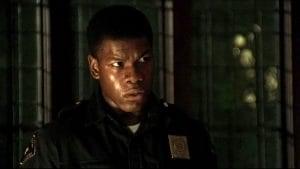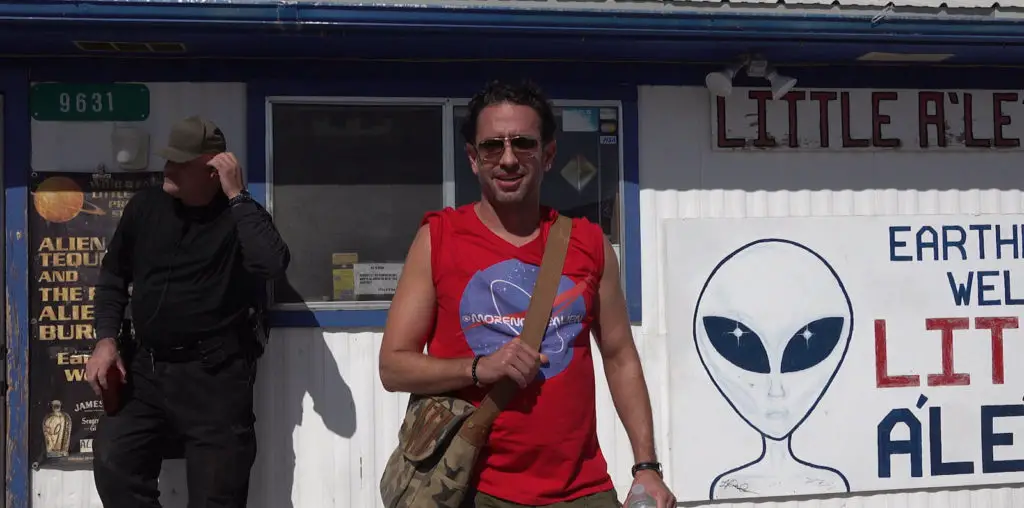
Judging from the thin layer of sweat on pretty much everyone’s faces, Detroit is scorching during the summer of 1967. Season is obviously a factor, but also driving up the heat are Motown tunes that have listeners swaying and – rather grimly – fires from the riots that are spreading citywide. Eventually, the temperature is exclusively in the latter’s control. Similar to its fact-based brethren, Detroit revisits the occurred to enlighten today’s cinemagoers, though considering the state of reality, the film can be interpreted as a grim auguring if incendiary thought processes are left unchallenged.
Look no further than July 28 for (another) an endorsement of conflict, specifically the enforcers-versus-citizens kind depicted in the film, when the president asks officers to be more forceful to arrestees. Police departments in many states have since rejected the call, yet it is hard to shake the feeling that an ugly fuse has been lit. Hence, as a twist, Detroit is director Kathryn Bigelow and writer-journalist Mark Boal’s timeliest at-boiling-point story thus far in their careers. This time, the moment of detonation happens not when EOD personnel discover a primed explosive or many years (secretly) after 9/11. We are at the millisecond before 0:00, and Bigelow effortlessly reflects it.

“…if the primary objective is to elicit reactions, consider it done.”
The Detroit Rebellion ignites with an incredibly public arrest at an unauthorized speakeasy on 12th Street, where black partygoers are all fancily dressed and liquor-infused to celebrate two soldiers made it out of Vietnam. Nearby locals, already fired up from years of racism and injustice efficiently told in cubism at the film’s intro, then trade insults and hurl objects at officers; some afterward use the occasion to damage and torch properties all over the city. With detainees visibly overfilling the station in every scene set there, it is a struggle for Officer Krauss (Will Poulter) to navigate to his superior’s room, not that he has an alternative after handling a young misdemeanor offender by shooting him in the back. While Poulter is English, and the rest of his character’s squad are Ireland’s Jack Reynor and Australian’s Peter O’Toole, they all easily pass the American accent test and display of unabashed racism despite an oath to protect to serve everyone. The script gives the most ground to Poulter, his character being the vilest, and the actor covers it with convincing hostility. Makes one wonder how he would have been as Pennywise.
The chaos on the streets then rams into the Algiers Motel where Larry (Algee Smith) and supportive pal Fred (Jacob Latimore) are waiting for their friends after a botched concert; fashionable teenagers Julie (Hannah Murray) and Karen (Kaitlyn Dever) are having fun with a rambunctious clique led by Carl (Jason Mitchell) and a job-seeking veteran (Anthony Mackie) is catching some sleep. In a moment of overexcitement, Carl fired his toy gun at some MPs down the road, leading them and level-headed watchman Dismukes (John Boyega) to declare a sniper situation. Every first responder in the vicinity promptly descend upon the motel, but bedlam only begins when Krauss and his boys turn an interrogation into a game with the motel’s residents. This harrowing encounter forms the bulk of Detroit’s 143 minutes.
Despite the first billing and an always-pleasing charisma, Boyega isn’t in the film much, making his character’s involvement to the core scenario a fleeting one. Dismukes’ nature offers an interesting argument – tension diffuser or “Uncle Tom” per some in his community – that the film doesn’t spend as much time on exploring as the brutality exerted and dehumanization endured. Bigelow and Boal know how to have us flinching by being unflinching, as with The Hurt Locker and Zero Dark Thirty, though their coordination with Barry Ackroyd’s omni-jittery, urgent photography and editor William Goldenberg’s lingering at the peaks of menace here brush exploitation. But if the primary objective is to elicit reactions, consider it done – even if questionable.

“Hope in Detroit is only a shred, nevertheless it is much needed…”
Fortunately, with Larry’s story eventually assuming a primary presence, Detroit stops short of being unconscionable. Besides sporting butter-smooth vocals, the sensitivity the Saginaw native singer/actor brings to Larry gifts viewers – especially minorities whose on-screen counterparts are the subjects of terrorization – with hope; how never gone is a reason to rise no matter the amount of scarring that broken systems have done unto them (and regrettably still doing, just more insidiously). Hope in Detroit is only a shred, nevertheless it is much needed.
That dollop of positivity, too, is vital to allay the jolt caused by the film’s ending title card, an in-bold statement that dramatic license was applied to link witnesses’ accounts and interspersed real media with Boal’s story. This can be a ripe talking point for a production that coats itself in a documentary sheen, yet in the breath afterward don’t abandon the parallels between Detroit’s depiction of restlessness 50 years ago and the whole country of late. Again the societal facet of the States finds itself in a feverish summer. How similar the one now to that of the past depends on how many are willing to perspire more than usual (Answer: all – so repetition is annihilated).

Detroit (2017) Directed by: Kathryn Bigelow. Written by: Mark Boal. Starring: John Boyega, Algee Smith, Will Poulter, Jacob Latimore, Hannah Murray, Kaitlyn Dever, Jason Mitchell, Jack Reynor, Peter O’Toole.
8 out of 10

